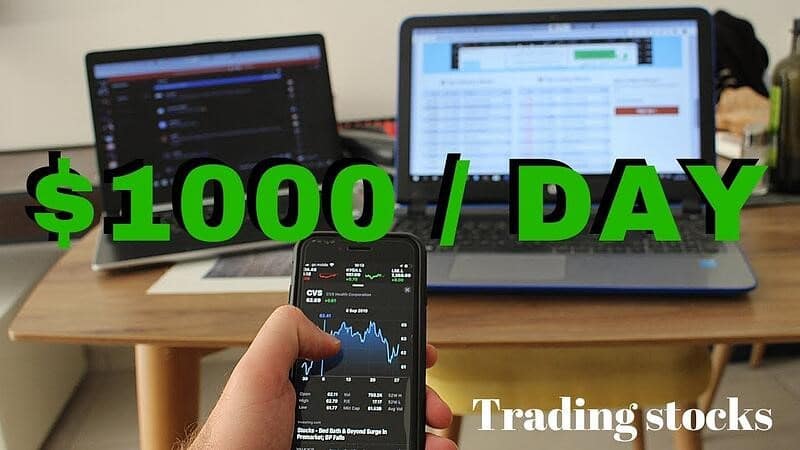Oftentimes I find myself battling against the concept of “day-trading.” Many people believe I sit behind a computer all day, watching the market minute by minute, making hurried micro-second changes.
Many retired investors use these strategies with their retirement savings. It’s heartbreaking.
Why would I say that? Here are a few gems I ran across (very easily) on the internet.
Our Congressive Day Trading System isn’t about making millions of dollars every day. The goal is to make money consistently every day. It is learning how to be reliant on yourself so you can focus on the actual movement of the market.
Dave’s Take: How is it possible to make money consistently every day!? Maybe I should buy their system so I can help YOU make money every day. Do you know who else promoted this slow and steady growth with no downturns? Bernie Madoff.
Are you ready to invest smarter with very little effort on your part? Over the past 15-months, Prep2Grow has achieved a 96+% win rate with 117+% return.
Dave’s Take: ANY time someone purports specific returns like this your alarms should be going off. Why? It is absolutely illegal for any licensed fiduciary or broker to show past returns.
If you thought that online trading is for men only, you are making one huge mistake! Thus, if you are a stay-at-home mom, this is the perfect way to make extra cash – and better yet, you’ll still have time for all your household requires of you!
Dave’s Take: I hope all you ladies do some studying between laundry and vacuuming. I’m kidding about the division of labor, but deadly serious about the risk of trading with no experience.
Let’s Have a Quick Reality Check
As I have mentioned repeatedly, “super-smart” Wall Street guys cannot make more money in the long term than a traditional long-term diversified investor.
I can’t tell you how many times I’ve heard, “Dave, I’ve been day trading for the last ten years or so and I’ve made a killing! I think I’ve really got a knack for this.”
My answer (which I usually keep to myself) is, “The stock market has done nothing but go up for ten years. You could have thrown darts at a dartboard and made money.”
What’s fascinating is when the stock market has a downturn. Suddenly, day-trading isn’t nearly as fun — at all. Right now I’m seeing a lot of ex-day traders in my office looking for some sensible guidance.
Moving in and out of cash is especially risky in times such as these. If your day-trading system involves moving in and out of the market rapidly based on daily returns, it turns into a mess. Why? While it is easy to sell all your investments and wait until things get better, when is the right time, exactly? Currently, I see this almost every day.
It goes something like this:
The market has a terrible day, and even though you might know it’s a mistake to sell your portfolio, it just doesn’t seem like it is worth the risk. You sell. You just want to wait until things settle down.
Then one of two things happen:
- The market keeps going down. “I’m a genius,” you think to yourself. “I wonder if it is going to keep on going down? I better hold off until it stops.”
- OR, the market starts going up. “Hmmm,” you say to yourself, “should I get in now? I know I’m not supposed to ‘buy high.’ I guess I should wait until it has a dip again.”
Do you see the problem here? When do you get back in? When do you get back in?
Either way, you lose. It is an emotional roller-coaster.
Stay the course. Allow the markets to do what the markets do. Remember that what the markets do this year or next does not matter.
Say that with me: What the markets do this year or next does not matter.
Day trading is a losing battle, nearly every time.
Interesting Story:
I have a friend who, in the 1990s, ran an investment portfolio. His returns were through the roof (far beyond the great returns the 90s had anyways). His performance was so incredible that pension systems began to approach him. Large companies like Dillards, Inc. were approaching him to manage all of their assets. We are talking hundreds of millions of dollars. Of course, my friends charged fees which led him to extreme riches.
Then other large companies got wind of his stellar returns. He started to experience a bit of fame. He found himself responsible for over a billion dollars.
He decided to retire and slow down the pace of his life. He already had more money than he could ever spend.
I asked him, “What was your secret? How did you blow all these other managers out of the water?”
He looked at me sheepishly, “I had 5% of my portfolio in Yahoo stock the whole time. It went from $1 a share to $110 a share. That’s over a 10,000% increase. I….got lucky.”
Be Blessed,
Dave
| 

No comments:
Post a Comment